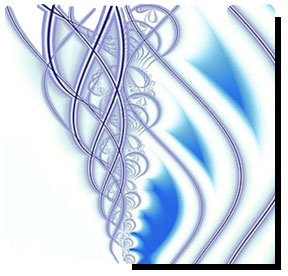WP – Integral
Theory
Integral Theory is a philosophy posited by Ken Wilber that
views reality as composed of ‘holons’ – something that is simultaneously a whole in and of itself, as well as a
part of a larger whole. In other words, holons can be understood as the constituent part of a holarchy. Holarchy
is commonly referred to as a form of hierarchy; however, hierarchy, by its definition, has both an absolute top
and bottom. But this is not logically possible in a holon, as it is both a whole and a part. For example, atoms
are parts of whole molecules, which are parts of whole cells, which are parts of whole organisms, and so
on.

A fractal is close to the idea of holon, as it
is a part that represents a whole at the same time. Do seeds contain trees or do trees contain seeds? We could say
both are true, because 'trees and seeds' is an example of a holon.
Besides the physical domain, holarchies are
found in the social and
formal sciences
– from pragmatism to
structuralism to linguistics to information theory to computer programming.
Integral Theory claims to be a "theory of
everything". It has been applied by scholar-practitioners in 35 distinct academic and professional domains as
varied as organizational management, art, and feminism.
In a nutshell, Integral Theory comprises:
• States of Consciousness. Natural states: waking, dreaming, deep formless sleep. Meditative, Altered, Peak
experiences.
• Stages or Levels of Consciousness. "Body, Mind, Spirit".
Pre-personal ('Body'): Ego-centric.
Personal ('Mind/Emotion'): Ethno- & World-centric.
Trans-personal ('Spirit'): worldsoul, etheric mind, I-I witness.
• Lines of Development: cognitive, interpersonal, moral, emotional & aesthetic.
• Types. Stages of consciousness follow a feminine and/or masculine ‘hierarchy’ since each stage has a higher
capacity for care and compassion.
In general, men follow rules, women follow connections; men look, women touch. Men tend toward
individualism, women toward relationship.
Women logic or 'voice': care & communion, relationship & responsibility.
Men logic or 'voice': agency & autonomy, justice & rights.
Wilber cautions, “the tendency take anything collective and
call it spiritual, mystical or transpersonal, is often misplaced, whereas much of it is simply prepersonal,
prerational, preconventional, and even regressive”.
Integral Theory ties it all together with a model known as
AQAL, short for "all
quadrants, all levels, all lines, all states, all types".
www.integralinstitute.org
| 